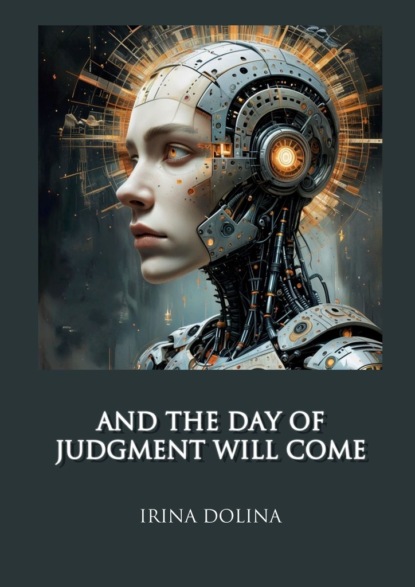And the Day of Judgment Will Come. or The End of the Will to Power

- -
- 100%
- +
In light of this, a valid question arises: how can we ensure fair conditions and social responsibility in post-industrial society? What protective measures can prevent risks arising from the introduction of high-tech solutions?
Acknowledging the growing role of the symbiosis between human mind and artificial intelligence, researchers highlight revolutionary experiments such as brain chip implants. These initiatives promise not only to enhance intelligence, cure diseases, and slow down aging, but also demand careful attention to strict ethical standards and safety measures.
Innovative technologies offer unprecedented precision in restoring damaged brain functions, giving hope to people for regaining a full life. At the same time, scientists face the challenge of formulating rules and norms that regulate permissible boundaries of intervention into the human organism.
The combination of human intelligence and AI capabilities promises a qualitative leap in the development of civilization. The synergy of both approaches will provide unprecedented opportunities for social progress and increased public welfare. Effective management of forthcoming challenges will be the result of collaborative efforts by experts from various scientific disciplines and humanitarian fields.
The prolonged phase of separate existence between the human brain and artificial intelligence is coming to an end. The incoming era demands thorough evaluation of existing trends and formulation of balanced policies aimed at protecting the rights and interests of every member of society.
The synthesis of human mind and artificial intelligence has created an extraordinary entity endowed with fantastic capabilities. The computational power of machines is supplemented by human feeling and intuition, enabling well-considered decisions that satisfy the needs of all stakeholders.
Emerging Principles of Moral Behavior
Empathy as a Norm: One of the key signs of new morality is heightened sensitivity to the emotions of others. Empathy stops being a facultative trait and becomes a prerequisite for effective communication. Its role expands not only in preventing conflicts but also in resolving tense situations efficiently. People start demonstrating empathy and support more actively, aiming to achieve mutual understanding and agreement.
Minimization of Harm: Minimizing harmful effects on nature and society becomes a foundational norm. Avoiding damage is no longer treated as an isolated measure but recognized as a fundamental principle of any activity. This rule applies across all areas of life, ranging from city ecology to tourism regulations. Responsibility for conserving natural resources and ensuring comfortable living conditions turns into a collective duty put into practice.
Ecological Solidarity: Recognition of Earth’s fragility has led to widespread acceptance of ecological solidarity. Consumption of clean foods, transportation powered by renewable energy sources, and waste recycling systems help reduce environmental burden. Society has realized the necessity of jointly preserving natural wealth for the sustainable development of future generations.
Accessibility of High-Quality Education: The right to education has become one of the cornerstones of new morality. Regardless of place of residence or financial means, every citizen should have equal access to the best educational resources. Online education, distance courses offered by prestigious universities, and access to interactive learning materials create equal starting positions for talented individuals worldwide.
Justice and Honesty: The foundation of the new social order consists of objective and transparent decision-making procedures. Sustainable society rejects corruption and discrimination, ensuring equal opportunities for all citizens. Decisions are made openly, involving independent experts and broad public discussion. Government authority becomes a tool for consolidation and justice, eliminating inequality and abuse of power.
Creativity and Collaboration: The value of creative activity is emphasized, as it is regarded as the source of new ideas and progressive initiatives. The state and public institutions support individual and collective ventures, funding research projects and innovative enterprises. Personal self-expression and teamwork become the main drivers of economic and cultural success in the country.
Safety and Trust: Individual security relies on comprehensive monitoring protected by reliable cryptographic mechanisms. Personal data and private life are legally protected, and the state guarantees inviolability of private information. Citizens trust governmental institutions, knowing that their safety and privacy are secured by reliable legislative measures and technical means.
Health and Longevity: Free medical care is provided to every citizen of the state. Regular preventive examinations enable doctors to promptly diagnose illnesses and initiate timely treatment. The increase in average life expectancy is linked to advances in medical science, effective disease treatments, and promotion of a healthy lifestyle. National health becomes a cherished national value, guarded by the efforts of the government and civil society.
The new human is characterized by a high degree of organization and strong commitment to universal human values. Millions of hearts are filled with optimism and faith in a brighter tomorrow, inspiring further achievements and confident progress towards collective well-being and prosperity.
Chapter 1.3:
The Problem of Objectivity in Moral Choices
Study of Contradictions Between Individual Preferences and Public Norms.
The issue of balancing personal choice and societal expectations becomes particularly acute in the era of symbiosis between human consciousness and artificial intelligence. Whereas once individual preferences were regarded as the privilege of a single subject, nowadays individual minds are woven into a network of interconnected agents operating in digital space.
Traditionally, it was believed that individuals bear responsibility for their actions. However, the mass transition to neurointerfaces and the creation of digital replicas of personalities casts doubt on the validity of this viewpoint. Who bears responsibility when a decision is made by a group of agents? Does full freedom of choice persist if a significant portion of decisions is determined by algorithms and external sources? Contradictions between individual preferences and societal norms sharpen in the era of symbiosis. Conflicts arise more frequently, taking acute forms of confrontation between individuals and groups holding different values. New legal and moral norms are required, taking into account mixed consciousness and multisubjectivity of decisions.
Конец ознакомительного фрагмента.
Текст предоставлен ООО «Литрес».
Прочитайте эту книгу целиком, купив полную легальную версию на Литрес.
Безопасно оплатить книгу можно банковской картой Visa, MasterCard, Maestro, со счета мобильного телефона, с платежного терминала, в салоне МТС или Связной, через PayPal, WebMoney, Яндекс.Деньги, QIWI Кошелек, бонусными картами или другим удобным Вам способом.





